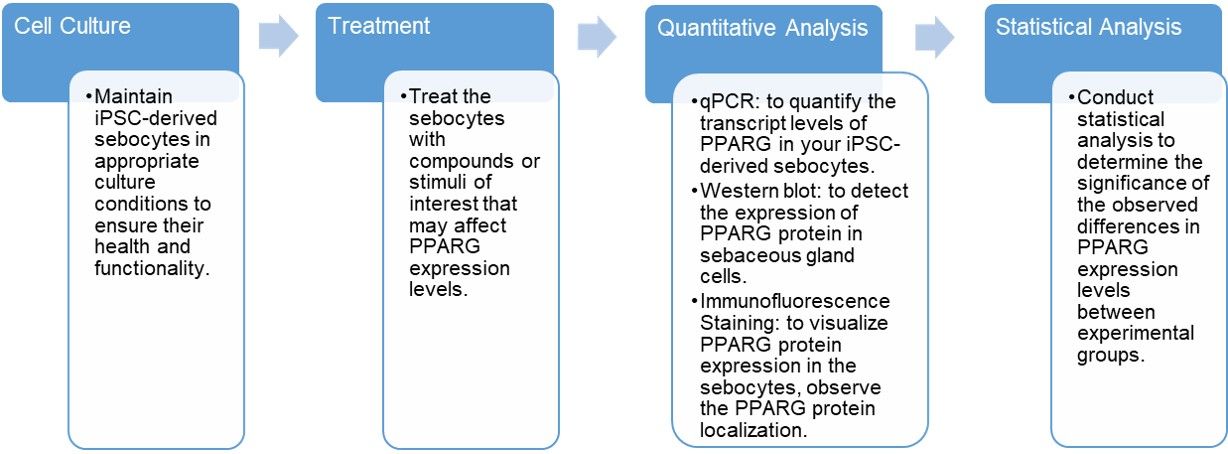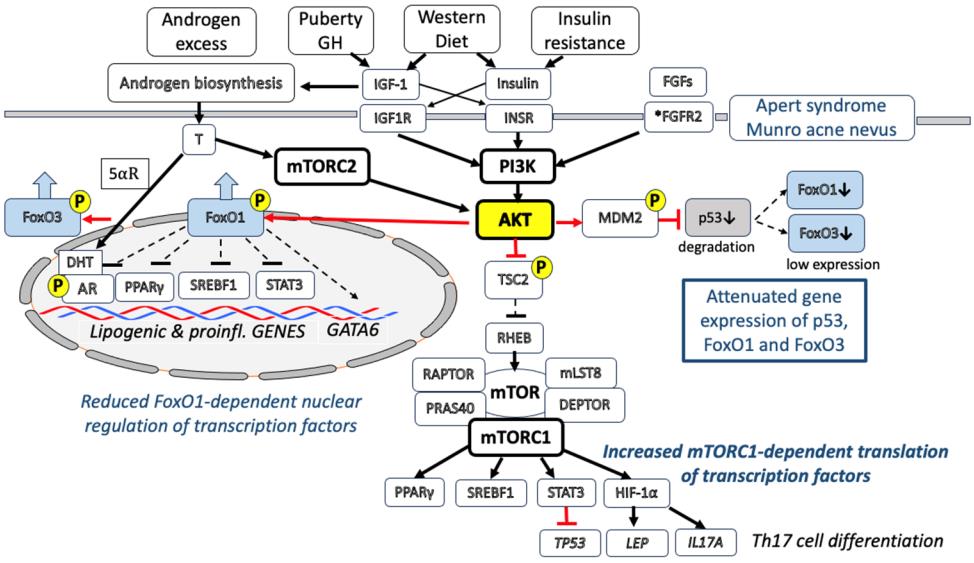Creative Biolabs has advanced platforms and a professional team to perform PPARG expression assay based on induced pluripotent stem cells (iPSC)-derived human sebocyte models, which can help you accelerate acne and hyper/hyposeborrhea drug ingredient validation and drug development research.
PPARG, which stands for peroxisome proliferator-activated receptor gamma, is a transcription factor that regulates several biological processes, including lipid metabolism, adipogenesis, and inflammation. PPARG is a ligand-activated transcription factor, with arachidonic acid as one of its endogenous ligands. The function of PPARG is regulated by PPARG agonists or antagonists, fatty acids, cytokines, or other signaling molecules. PPAR agonists have been shown in studies on sebocytes and human sebaceous glands to increase sebum lipid synthesis.
The iPSC-derived sebocytes exhibit key characteristics of natural sebocytes, including lipid production, expression of sebaceous gland-specific markers, and responsiveness to hormonal regulation. They also demonstrate functionality in forming sebaceous structures and hold potential for personalized treatments in dermatology and cosmetic research. The sebocyte model derived from induced iPSC represents a high stability and reproducibility method used to measure the levels of PPARG expression in cells.
The assay typically involves the following steps:

In acne, dysregulation of sebaceous gland function and excess sebum production are key factors contributing to the development of the condition. PPARG is known to regulate sebocyte differentiation and lipid metabolism, and may contribute to acne development by increasing sebum production, making it a potential therapeutic target for modulating sebum production. Through the PPARG expression assay in an iPSC-derived sebocyte model, researchers can gain insights into the regulatory mechanisms of PPARG in sebaceous glands under various experimental conditions and identify abnormalities that may inform targeted drug development strategies. Understanding the role of PPARG in these conditions can lead to the discovery of novel treatments aimed at restoring sebaceous gland homeostasis and mitigating symptoms associated with acne and hyper/hyposeborrhea, offering new therapeutic avenues for improving skin health.
 Fig.1 Peroxisome proliferator-activated receptor γ (PPARγ) in the regulation of acne.1
Fig.1 Peroxisome proliferator-activated receptor γ (PPARγ) in the regulation of acne.1
Creative Biolabs is a leading company in the field of stem cell therapy services, providing customized services for various tests and analyses based on iPSC-based cell models. Our services are also continuously updated to provide you with more comprehensive IPSC-derived cell models and analyses. If you have any requests or questions, please contact us directly.
Reference
For Research Use Only. Not For Clinical Use.